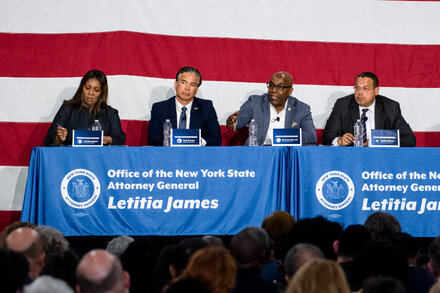
A federal judge has issued a nationwide preliminary injunction, blocking the Trump administration’s executive action that sought to withhold federal funding, including crucial FEMA grants, from states and localities deemed non-cooperative with federal immigration enforcement policies. The ruling marks a significant setback for the administration’s efforts to leverage federal dollars to influence local immigration practices.
U.S. District Judge Evelyn Reed, presiding in the Northern District of California, found that the administration likely exceeded its constitutional authority and violated the separation of powers by attempting to redirect congressionally appropriated funds based on immigration criteria not outlined in the funding statutes. The decision comes after a coalition of states and cities filed suit, arguing the policy was punitive and unlawfully infringed upon their sovereignty.
Background of the Administration’s Policy
Since taking office, the Trump administration has repeatedly sought to pressure “sanctuary” jurisdictions – those with policies limiting cooperation with federal immigration authorities – into greater alignment with its enforcement priorities. Various executive orders and directives have targeted federal funding as a primary tool to compel compliance. The latest initiative specifically targeted a broader range of federal grants, including disaster relief funds administered by the Federal Emergency Management Agency (FEMA), linking their disbursement to adherence to federal immigration mandates.
The administration contended that states and cities failing to fully cooperate with federal immigration detainer requests undermine national security and public safety. Officials argued that withholding funds was a necessary measure to ensure a unified approach to immigration law enforcement across the nation.
The Judge’s Reasoning
In her detailed 68-page opinion, Judge Reed asserted that the President’s executive authority does not extend to unilaterally imposing new conditions on federal grants that Congress has already appropriated without such stipulations. She highlighted that Congress specifies conditions for federal spending through legislation, and the executive branch cannot rewrite these terms through executive action.
The judge’s order stated that the administration’s policy likely violated the Tenth Amendment, which reserves powers not delegated to the federal government to the states, and the Spending Clause, which grants Congress the power to lay and collect taxes and to provide for the general welfare. She concluded that the plaintiffs demonstrated a strong likelihood of success on the merits, citing precedents that limit the federal government’s ability to “coerce” states into federal programs by withholding funds.
Furthermore, Judge Reed found that the plaintiffs would suffer irreparable harm without an injunction, particularly given the potential loss of funding for essential services and disaster preparedness, which could jeopardize public safety and welfare in numerous communities.
Implications of the Ruling
The preliminary injunction prevents the Department of Homeland Security and other federal agencies from implementing the funding cuts while the lawsuit proceeds through the courts. This means that states and cities will continue to receive the federal grants they were allocated, including FEMA funds vital for emergency services and disaster recovery efforts, regardless of their specific immigration policies.
The ruling is expected to be appealed by the Trump administration, likely to the Ninth Circuit Court of Appeals, setting the stage for a prolonged legal battle over the scope of presidential power and federal-state relations regarding immigration policy. Legal experts suggest that similar challenges to the administration’s use of federal funding as leverage have often faced judicial scrutiny, frequently leading to injunctions against such policies.
For states and localities, the injunction provides a temporary reprieve from the immediate threat of funding cuts, allowing them to continue their existing immigration policies without federal financial penalty. However, the underlying legal questions about the federal government’s authority to impose immigration-related conditions on funding remain a contentious issue that could ultimately reach the Supreme Court.
Source: Read the original article here.





